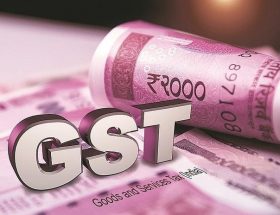
How to Train for Competitive Gaming Tournaments
When it comes to improving competitive gaming skills, there are a few key pieces of advice that pros share. First, professional gamers recommend that newcomers cut their teeth by competing with players at a higher skill level. This will push them to improve quicker than they normally would.
Second, other pros suggest using high-tech equipment, whether a wireless controller or a top-tier keyboard. Some might even recommend sticking to a singular brand to make sure all peripherals work seamlessly. Lastly, gamers also suggest creating targeted practice sessions where they will look to improve one skill or tactic.
But this is only the tip of the iceberg. When it comes to gaming, one event that many pros and hopefuls prep for is a major tournament. Tournaments differ greatly from casual play, as the stakes are higher and the competition is more refined. When it comes to advice on how to improve gaming skills for tournament play, the suggestions vary.

And they apply to more than just eSports gamers. For example, online platforms such as PokerStars welcome millions of poker players each year. These players stick to home games and cash games to develop their skills and have a bit of fun—but some might be targeting online tournaments in order to get on a leaderboard, get their name out there in competitive poker, and possibly take home a prize.
The same goes for non-digital gaming, too. Players who compete in Magic: the Gathering might show up for a face-to-face game, but they’ll be leaning on similar skills like those fostered by eSports and poker players. That’s because tournament play creates specific demands that gamers of all stripes have to prepare for. Here’s how to do that.
Practice for Endurance
Tournament play differs greatly from casual gaming sessions. While organizers might switch to a different game mode during a tournament, the game itself won’t actually change. What will change is how long a gamer must stick with playing—and at the level of which they must remain competitive over that time period.
Viewed in this way, tournament play is all about endurance. As you prepare for your tournament, craft a practice schedule that prioritizes long stretches of play. Take notes on when you start to get distracted, then try to find solutions that keep that brain functioning at top speed—and maybe for hours at a time.
Prep the Body & the Mind
Today’s eSports teams include nutritionists and physical trainers to help prepare gamers for tournaments. However, they’ve been used in poker play for even longer. Starting in the early 2000s, the concept of ‘body hacking’ had mental and gaming athletes searching for a way to optimize their body’s natural functions.
Today, there are specific diets, sleep schedules, and exercise routines designed for gamers. Regardless of which title is your favourite, there are probably a few suggestions online to help you craft a healthier approach to tournament prep.

Know Your Own Groove
Above, we mentioned that one key component of tournament play is practicing for long periods of time. To develop endurance, a player has to understand their weaknesses. But they should also understand what helps ‘get them in the groove’ and, even more importantly, what can help snap them back into that groove after a rough loss.
For poker players, this is known as a bad beat. For eSports gamers, it might be getting a ‘GG EZ’ message in the chat. Regardless of what challenges you face, be sure to pay attention to what helps you get into your flow and block out all the noise. For some, this might be playing specific music. For others, it might be keeping a little memento in view.
Develop a Community Approach
One reason that pros advise new gamers to compete against those better than them is that they’re going to learn strategy at a faster pace. By seeing how others get the job done, they can craft their own unique approach and skip some corners.
One last way to prep for tournaments is to really invest in that community. Even if you aren’t friends with the people you game with, you still share a hobby—and they might have some advice that you haven’t yet realized. Consider building a gaming community and leaning on them for help when prepping for a tournament.









